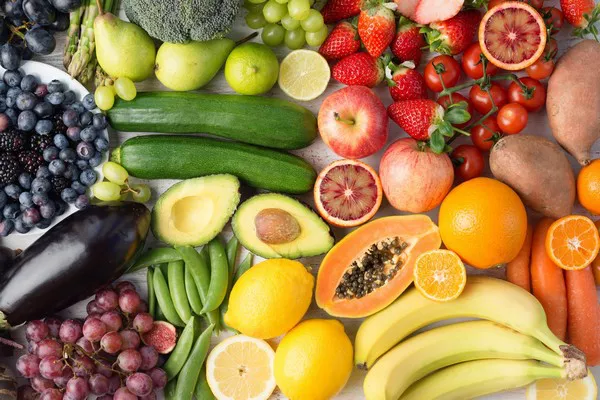As we age, our nutritional needs undergo various changes, and ensuring proper vitamin intake becomes increasingly important. Vitamins play a crucial role in maintaining overall health and well-being, especially for the elderly. In this comprehensive guide, we will explore the essential vitamins that seniors need to support their aging bodies. From bone health to immune function, we’ll delve into the specific benefits of each vitamin, dietary sources, and potential risks of deficiency. By understanding these vital nutrients, you can make informed choices to promote a vibrant and healthy lifestyle in your golden years.
5 Essential Vitamins for Aging Well
1. Vitamin D: The Sunshine Vitamin
Bone Health
Vitamin D is essential for calcium absorption, which is crucial for maintaining strong bones and preventing osteoporosis, a common concern for the elderly.
Immune Support
Vitamin D also plays a role in supporting the immune system, helping the body fend off infections and illnesses.
Dietary Sources
Seniors can obtain vitamin D from sun exposure, fortified foods like milk and cereals, and supplements if recommended by a healthcare provider.
See Also: Why Vitamin D Matters: Things You Need to Know
2. Vitamin B12: Nerve Function and Energy
Nervous System Health
Vitamin B12 is vital for maintaining healthy nerve function and cognitive health, which is particularly relevant as we age.
Energy Production
This vitamin also aids in energy metabolism, helping seniors maintain their vitality and prevent fatigue.
Dietary Sources
Sources of vitamin B12 include animal products like meat, fish, eggs, and dairy. For seniors with absorption issues, supplements may be necessary.
See Also: Why Vitamin B12 Matters: A Complete Overview
3. Vitamin C: Immune Boosting Antioxidant
Immune Defense
Vitamin C is known for its immune-boosting properties, helping the body fight infections and promoting wound healing.
Antioxidant Protection
As an antioxidant, vitamin C helps combat oxidative stress and supports healthy skin and connective tissues.
Dietary Sources
Seniors can find vitamin C in citrus fruits, berries, bell peppers, and leafy greens, contributing to a well-rounded diet.
See Also: 6 Fruits With The Highest Vitamin C Content
4. Vitamin E: Cellular Protection
Antioxidant Benefits
Vitamin E is another powerful antioxidant that helps protect cells from damage and supports skin health.
Heart Health
This vitamin may contribute to heart health by promoting healthy blood vessels and circulation.
Dietary Sources
Nuts, seeds, and vegetable oils are excellent sources of vitamin E. Including these foods in the diet can help seniors meet their nutritional needs.
See Also: Why Vitamin E Matters: 5 Health Benefits
5. Vitamin K: Bone and Blood Health
Bone Health
Vitamin K is essential for bone health as it supports proper calcium utilization, reducing the risk of fractures.
Blood Clotting
This vitamin also plays a role in blood clotting, aiding in wound healing and maintaining cardiovascular health.
Dietary Sources
Leafy greens, broccoli, and Brussels sprouts are rich sources of vitamin K. Incorporating these vegetables into meals can contribute to vitamin K intake.
See Also: Vitamin K: Types, Health Benefits & Dietary Sources
Potential Risks of Deficiency
1. Impact on Health
Deficiencies in these essential vitamins can lead to various health issues, including weakened bones, compromised immune function, and cognitive decline.
2. Importance of a Balanced Diet
Maintaining a well-rounded diet that includes a variety of nutrient-rich foods is essential for preventing vitamin deficiencies.
Consultation with Healthcare Professionals
1. Personalized Recommendations
Seniors should consult their healthcare providers before making significant changes to their vitamin intake, as individual needs vary.
2. Monitoring and Assessment
Regular check-ups and assessments can help identify any potential deficiencies and guide appropriate interventions.
Conclusion
In conclusion, understanding the vitamins that seniors need is key to promoting optimal health and well-being in the aging population. From bone health and immune support to nerve function and antioxidant protection, these essential nutrients play a vital role in maintaining a vibrant and active lifestyle. Seniors should aim to obtain these vitamins through a balanced and varied diet, incorporating nutrient-rich foods into their meals. If necessary, healthcare professionals can provide personalized recommendations and guidance to ensure that seniors meet their vitamin requirements and enjoy a fulfilling and healthy life as they age gracefully.


